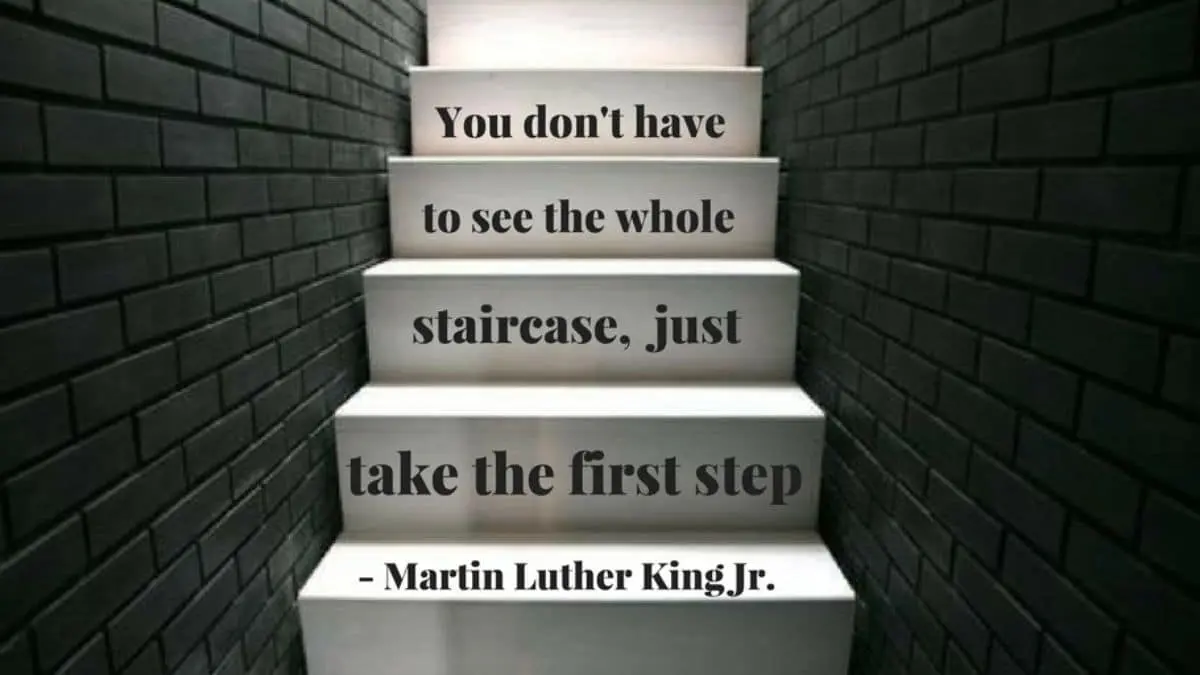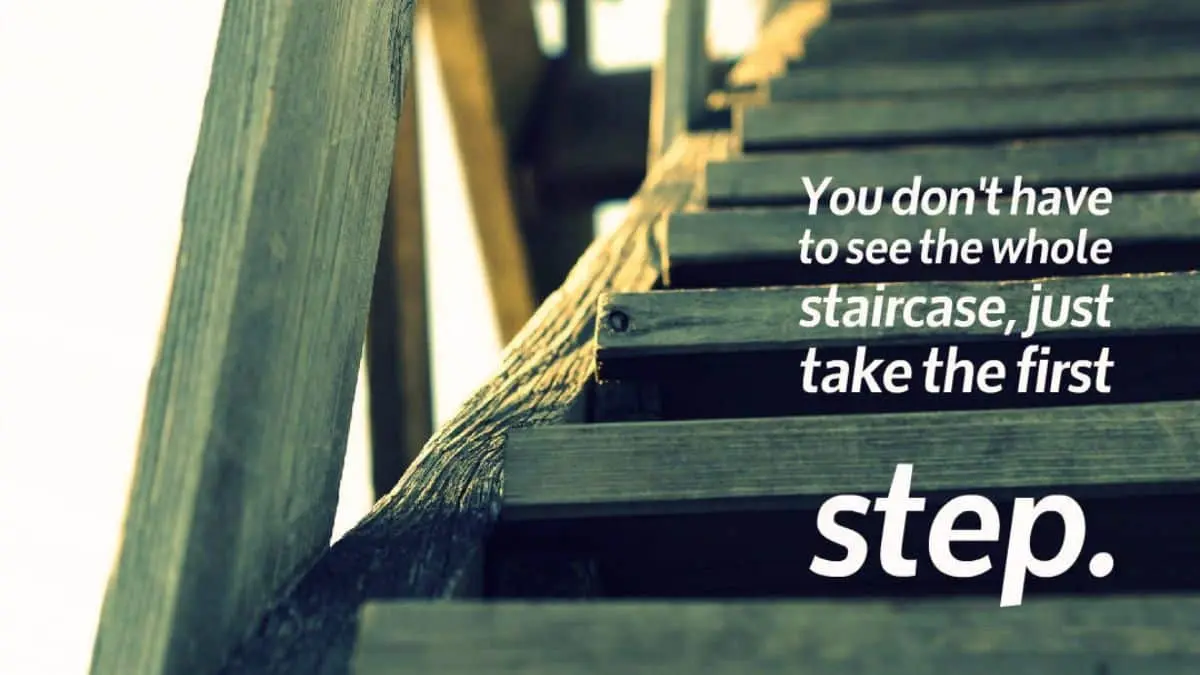You don’t have to see the whole staircase, just take the first step.
Martin Luther King Jr.
In the journey of life, we often find ourselves at the foot of a metaphorical staircase, gazing up into the obscurity of what our future holds. This staircase can represent our personal dreams, professional aspirations, or even our path to self-improvement. The daunting nature of the unknown often keeps us rooted in place, paralyzed by the ‘what ifs’ and the ‘buts’ that cloud our minds. However, as Martin Luther King Jr. wisely stated, it’s not about seeing the entire path laid out in front of us, but rather having the courage to take that initial, pivotal step.
I. Understanding the Staircase: The Challenge of the Unknown
The staircase is a powerful metaphor for the journey of life. Each step represents a phase, a challenge, or a decision – small progressions in our larger journey. The top of the staircase is our goal, shrouded in Mystery, representing the uncertainty of our endeavors. This uncertainty is often what holds us back. We fear the unknown because it’s unpredictable, and our minds are wired to prefer safety and certainty.
II. The Paralysis of Analysis
Before taking the first step, many of us get stuck in the phase of overthinking – analyzing every possible outcome, trying to foresee every hurdle. This ‘analysis paralysis’ can be our biggest adversary. It often leads to inaction, as the fear of making a wrong move keeps us stagnant. The irony is, inaction is, in itself, a choice that can lead to missed opportunities and regrets.
III. The Wisdom in Martin Luther King Jr.’s Words
When Martin Luther King Jr. spoke these words, he wasn’t just offering a piece of advice; he was sharing a profound life philosophy. He was a man who walked many uncertain paths, leading movements and challenging the status quo. His words resonate with the idea that progress, however small, is still progress. They remind us that the journey of a thousand miles begins with a single step.
IV. The Science of Starting Small
There is significant psychological research supporting the idea of starting small. The Zeigarnik effect, for instance, suggests that people remember uncompleted or interrupted tasks better than completed tasks. Starting something creates a kind of psychological tension that improves our capacity to recall and motivates us to completion.
V. Historical Examples of Courageous First Steps
History is replete with examples of individuals and movements that have embodied this principle. Rosa Parks’ refusal to give up her seat didn’t seem like a monumental step at the moment, but it was the first step towards the Civil Rights Movement. In a more contemporary context, the story of how Steve Jobs started Apple in a garage is another testament to beginning with what you have, where you are.

VI. The Ripple Effect of the First Step
The first step is often the most critical because it has a ripple effect. Action breeds action. Once we overcome the inertia of inaction and take that initial step, the subsequent steps become easier. It’s akin to pushing a boulder down a hill – the hardest part is getting it to move, but once it does, its own momentum keeps it going.
VII. Embracing Failure as a Stepping Stone
It’s important to acknowledge that not all first steps lead directly to success. Failure is an integral part of the journey. Each misstep is an opportunity for learning and growth. The staircase is not a straight, unobstructed path. It has its twists, turns, and perhaps a few missing steps. Embracing failure as a part of this process is crucial.
VIII. The Role of Faith and Belief
Taking the first step is as much about faith as it is about courage. It’s believing in the potential of what lies at the top of the stairs, even when you can’t see it. This belief doesn’t have to be based on certainty; it can stem from hope, ambition, or the simple desire to see what’s possible.
IX. The First Step in Personal Growth
The concept of the first step isn’t limited to grand external achievements. It’s also deeply personal. Whether it’s about overcoming a personal flaw, learning a new skill, or improving our health, the first step is often the hardest. It requires us to confront our limitations and step out of our comfort zones.
X. Creating a Supportive Environment
While the first step is a personal choice, the environment we create for ourselves can significantly impact our journey. Surrounding ourselves with supportive people, cultivating a positive mindset, and preparing for setbacks can make the journey less daunting.
XI. The Journey Continues
Remember, the staircase doesn’t end with the first step. It’s a continuous journey. Each step builds on the last, creating a path that, though it may not be straight or predictable, leads us towards our goals. The key is to keep moving, to keep climbing, one step at a time.
Conclusion: The Courage to Begin
Martin Luther King Jr.’s words “You don’t have to see the whole staircase, just take the first step” serve as a timeless reminder of the power inherent in taking that first step. It’s about embracing the unknown, acknowledging our fears but not being hindered by them, and understanding that the path to any achievement begins with the decision to try. So, as you stand at the bottom of your staircase, whatever it may represent, remember that you don’t need to see the whole path. You just need the courage to take the first step.
Also Read: Wake up with determination, go to bed with satisfaction



